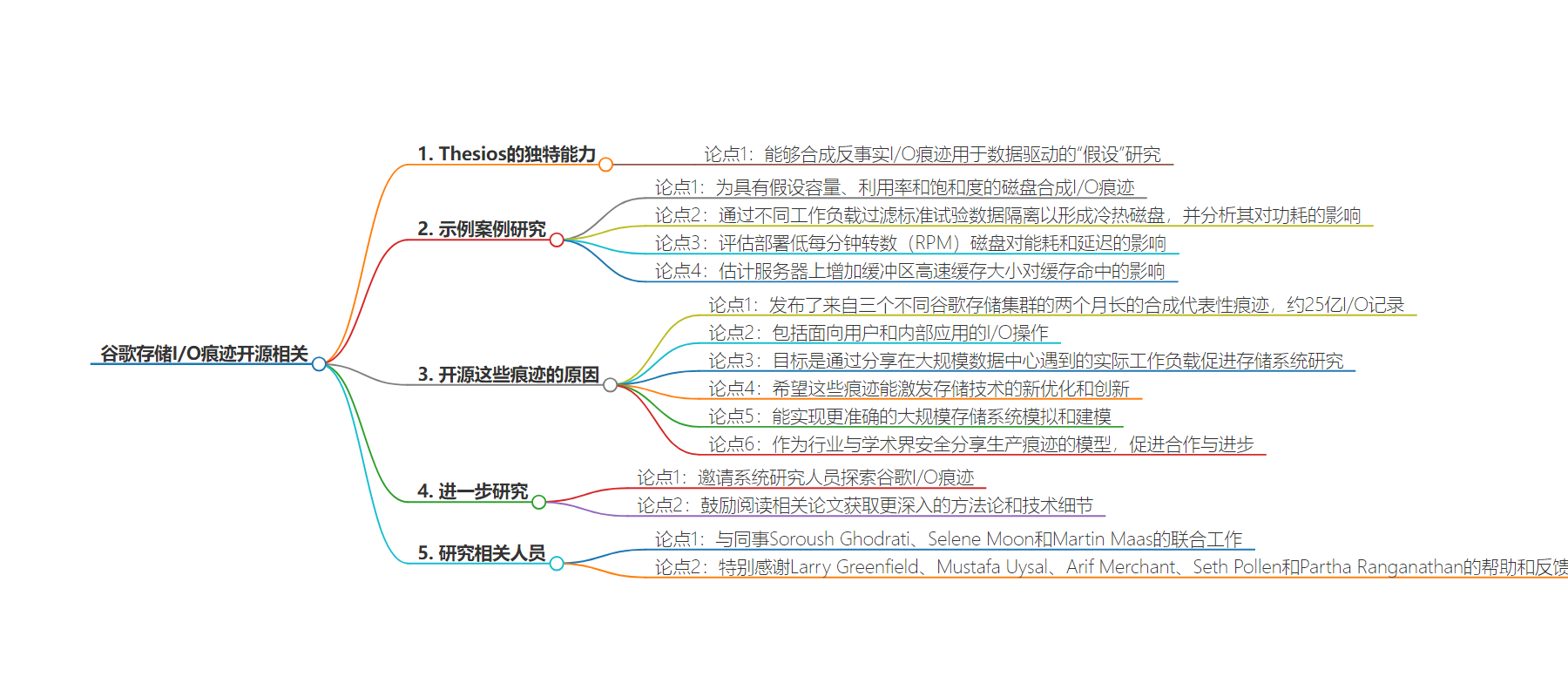包阅导读总结
1.
关键词:Google 存储、I/O 痕迹、合成、开源、研究
2.
总结:Thesios 能合成反事实 I/O 痕迹用于研究,文中展示了四个案例研究。谷歌开源了约 25 亿条来自三个不同存储集群的两个月合成痕迹,包括面向用户和内部应用的 I/O 操作,旨在促进存储系统研究,鼓励系统研究者探索并阅读相关论文。
3.
主要内容:
– 关于 Thesios
– 具有合成反事实 I/O 痕迹用于数据驱动“假设”研究的独特能力。
– 通过四个案例展示其在 I/O 痕迹合成和分析方面的应用。
– 开源谷歌存储 I/O 痕迹
– 发布了约 2.5 亿条来自三个不同谷歌存储集群的两个月合成痕迹。
– 包含用户和内部应用的 I/O 操作。
– 目的是促进存储系统研究。
– 希望能激发新技术优化创新,助力准确模拟建模,成为行业与学术界分享生产痕迹的范例。
– 相关鼓励与致谢
– 邀请系统研究者探索并阅读相关论文。
– 感谢同事在联合工作中的帮助和反馈。
思维导图:
文章来源:cloud.google.com
作者:Phitchaya Mangpo Phothilimthana,Saurabh Kadekodi
发布时间:2024/6/25 0:00
语言:英文
总字数:714字
预计阅读时间:3分钟
评分:88分
标签:系统,存储和数据传输
以下为原文内容
本内容来源于用户推荐转载,旨在分享知识与观点,如有侵权请联系删除 联系邮箱 media@ilingban.com
A unique capability of Thesios is the ability to synthesize counterfactual I/O traces for conducting data-driven “what-if” studies. In our paper, we demonstrate how Thesios enables diverse counterfactual I/O-trace synthesis and analyses of hypothetical policy, hardware, and server changes via four example case studies:
-
Synthesizing I/O traces for disks with hypothetical capacities, utilization, and fullness
-
Experimenting with data segregation to form hot and cold disks by using different workload filtering criteria and analyzing the data segregation’s impacts on power consumption
-
Evaluating the impact on energy consumption and latency of deploying a low rotations-per-minute (RPM) disk
-
Estimating the impact on cache hits of increasing buffer cache size on a server
Why open-source these traces?
We have released two-month-long synthesized representative traces from three different Google storage clusters, containing approximately 2.5 billion I/O records. These traces include I/O operations from both user-facing and internal applications. Our goal is to fuel storage-systems research by sharing realistic workloads that we encountered in our large-scale data centers. We hope these traces will:
-
Inspire new optimizations and innovations in storage technology
-
Enable more accurate simulations and modeling of large-scale storage systems
-
Serve as a model for how industry can securely share production traces with academia, fostering collaboration and progress
We invite systems researchers to explore our Google I/O traces. We believe these traces offer a unique opportunity to delve into the complex world of large-scale storage and drive meaningful advancements. Download the traces and start your research today!
For a deeper dive into our methodology and the technical details, we encourage you to read our ASPLOS paper: Thesios: Synthesizing Accurate Counterfactual I/O Traces from I/O Samples.
The research in this post describes joint work with our colleagues Soroush Ghodrati, Selene Moon, and Martin Maas. We also extend special thanks to Larry Greenfield, Mustafa Uysal, Arif Merchant, Seth Pollen, and Partha Ranganathan for their help and feedback on the trace release.
